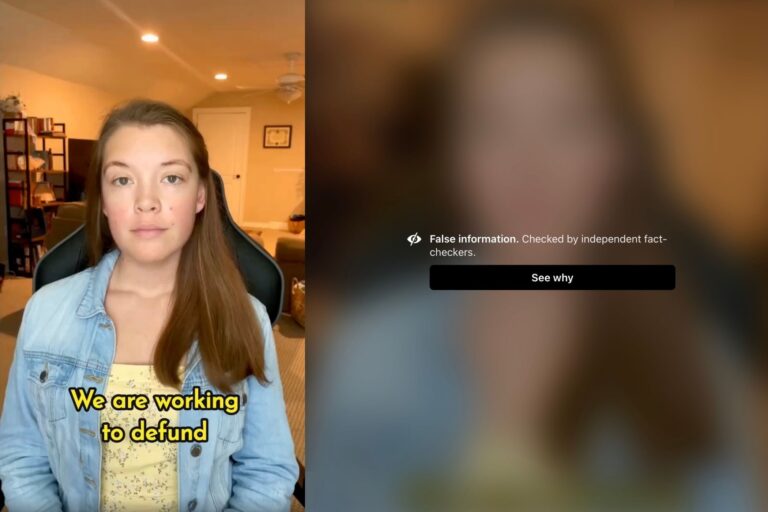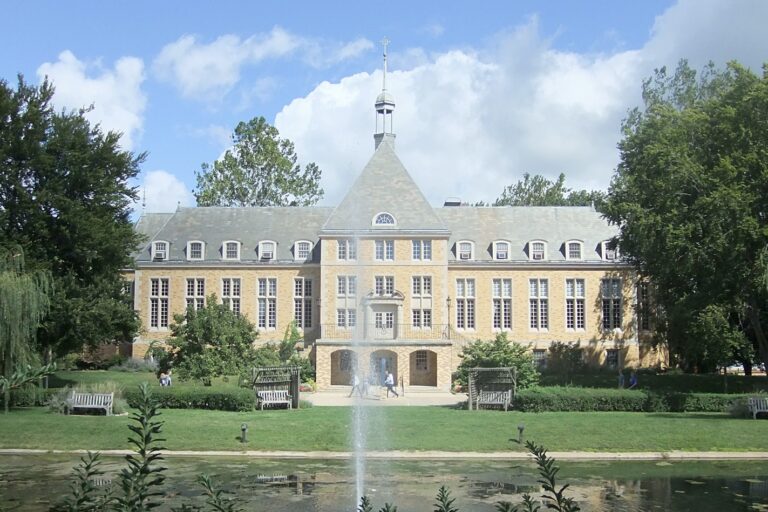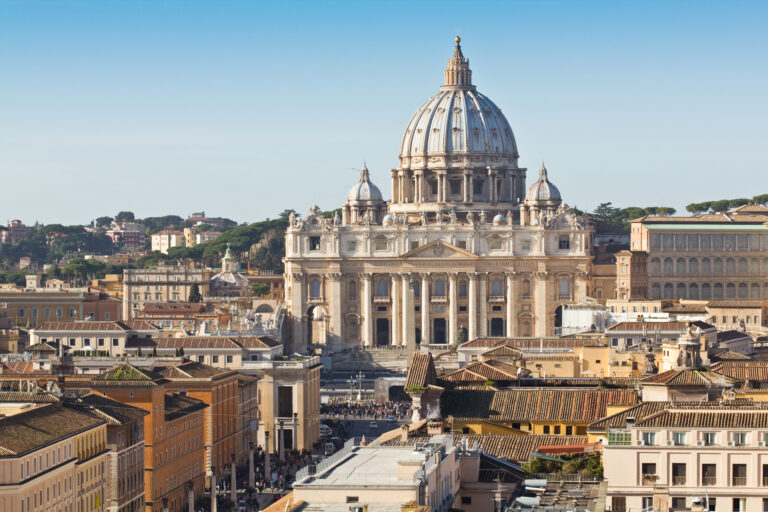An attempt by pro-abortion lawmakers last week in New South Wales, Australia, to ram through a radical abortion bill has been delayed by strong pro-life and Catholic opposition led by the Archbishop of Sydney, Archbishop Anthony Fisher.
The bill, which was introduced into the lower house of the New South Wales (NSW) parliament on Thursday, would legalize abortion up to the point of birth with virtually no restrictions. The bill closely mirrors similar bills passed on the state level in the United States earlier this year legalizing abortion up until birth in states like New York, Illinois, Vermont, and Rhode Island.
Despite having only three-days notice that the bill was set to be introduced, hundreds of pro-life supporters gathered in front of the parliament building on Thursday morning to protest the bill.
Members of Parliament have attempted to fast track the bill in the lower house. Supporters of the bill had originally planned to introduce the bill on Thursday and open debate on the bill the same week. The bill had only been announced on July 28. Prior to Friday, the text of the bill had not even been made available to the public, giving NSW citizens little to no opportunity to contact their Members of Parliament to express their concerns about the bill.
However, following an outcry from conservatives and religious leaders, lawmakers have postponed opening debate on the bill until Tuesday.
Leading the charge in religious opposition to the bill is Roman Catholic Archbishop Anthony Fisher, Archbishop of Sydney. Last Tuesday, Archbishop Fisher disclosed that he had sent a letter, along with other religious leaders, to the Premier of New South Wales, Gladys Berejiklian, urging her to delay the debate on the abortion bill. Other religious leaders who joined the Archbishop’s letter included Anglican Archbishop of Sydney Glenn Davies, Primate of the Greek Orthodox Archdiocese of Australia Archbishop Makarios and co-ordinatory of Australia’s Eastern Catholic Bishops, Bishop Antoine-Charbel Tarabay.
“The bill is a bad one,” Archbishop Fisher said in the joint letter. “It will allow abortion right up to birth if two doctors agree,” he said, “It is yet another attack upon the rights of people of faith.”
“It is the dream bill of the abortion industry, which they have already pressed upon several other states; but it will leave unborn children and unsupported pregnant women even more at risk,” Archbishop Fisher said.
Last Monday, a statement released by the Archdiocese called the NSW abortion bill “an attack on the sanctity of life” and said the bill “must be strongly opposed.” Archbishop Fisher also called on all Catholics to contact their elected representatives in parliament immediately and urge them to vote against the bill.
“I urge all Catholics to rally against this proposed law and, at the same time, recommit ourselves to reaching out with prayer and practical support for women in crisis,” Archbishop Fisher said.
The abortion bill itself would legalize abortion on demand up to 22 weeks gestation. After 22 weeks, abortion would be permitted with the consent of two doctors after considering “all relevant medical circumstances,” including all “physical, psychological and social circumstances,” both “current and future.”
Abortion is currently illegal in New South Wales except in cases to save the life of the mother, and in cases of physical and mental health. However, in 1995, the NSW Supreme Court reinterpreted the “mental health” exception to include “economic or social stress” that may result either “during pregnancy or after birth.”
The circumstances under which doctors would be authorized to approve of an abortion after 22 weeks under the newly proposed bill are exceptionally broad.
Under the proposal, doctors would be able to approve an abortion after 22 weeks even for light reasons like work-related stress, financial stress, still in school, the fear of their parents finding out that she is pregnant, or even simply the psychological ‘duress’ of carrying a pregnancy to term. It is not even necessary for the pregnant woman to be presently experiencing any of these stress-related events at the time an abortion is approved. The mere anticipation that she will likely experience them in the near future will be sufficient reason enough. The abortion bill would make NSW’s one of the most permissive abortion laws in the world.
Despite giving the appearance of establishing some restrictions on abortion after 22 weeks, namely that doctors are required to take “all” medical circumstances into consideration, there are no mechanisms in place to assure that all the relevant circumstances will actually be taken into account. The bill does not require either of the two consenting doctors to record or even justify their reasoning for an abortion.
The NSW abortion bill would allow abortion after 22 weeks for essentially any reason, just so long as the pregnant woman can find a doctor who is sympathetic to abortion. And that should not be too difficult to do considering that both consenting doctors can be abortionists. There is no requirement in the bill that the two doctors be independent of each other either. In fact, both consenting “doctors” (read: abortionists) can even work in the same abortion clinic.
Worse yet, there there are no criminal penalties in the bill for a doctor who fails to obtain a second opinion before performing an abortion or who fails to take all medical circumstances into consideration. The most any doctor would face for violating these provisions would be professional conduct sanctions.
In an op-ed that appeared in The Sydney Morning Herald on Thursday, Damien Tudehope, a NSW cabinet member and Member of Parliament of the upper house of the NSW state legislature, made clear that the NSW abortion bill would “make abortion legal in NSW all the way up to birth, with no meaningful restrictions whatsoever.”
Under the proposed NSW abortion bill, doctors would also be denied the right to conscientious objection. While objecting doctors would not be required to perform abortions, they would be required by law to refer women seeking abortion to another provider who was be willing to perform the procedure.
“The Bill to decriminalize abortion is as radical a pro-abortion bill as you could get,” says Paul Hanrahan, Executive Director of Family Life International, Australia.
“They have been using the argument that doctors are scared to refer for abortion under the current laws for fear of prosecution, they say women are unsure what to do when they want an abortion because of these laws,” says Hanrahan. “Despite this there are some 35,000 abortions here every year. There has only been one doctor prosecuted under the current laws in 40 years. Doesn’t sound like they have any problems,” Hanrahan says.
NSW Premier Gladys Berejiklian and several cabinet members in the NSW state government have thrown their support behind the bill.
“If the legislation contains what I think it does, I’ll be supporting it,” Ms. Berejiklian said according to The Sydney Morning Herald.
Pro-abortion MPs attempted to fast track the bill in the lower house. After announcing the bill on July 28th, they had originally planned to formally introduce it on Thursday and open debate that same week. Prior to Friday, August 1, the text of the bill had not even been made available to the public. This was clearly a deliberate effort to deny Australians the opportunity to contact their Members of Parliament to express their concerns about the bill.
However, following the outcry from conservatives and religious leaders led by Archbishop Fisher, lawmakers have postponed opening debate on the bill until Tuesday.
From August 5 at 1:30pm until 6:30 am Tuesday morning, the Archdiocese will also be holding a non-stop 65-hour prayer vigil at the St. Mary’s Cathedral in Sydney to pray for the defeat of the abortion bill.
Many observers on both sides of the debate believe the abortion bill is likely to pass even though conservative-leaning Liberal and National parties have control of both houses of the state parliament.
Lawmakers from political parties on both the right and the left have thrown their support behind the bill. The bill was written by lawmakers from both the government and opposition parties. The media is calling the abortion bill “historic” as it has a total of 15 co-sponsors, the most co-sponsors ever for a bill introduced in the NSW parliament.
Although smaller in number, pro-lifers also enjoy bipartisan support with lawmakers on both sides of the political spectrum having come out in opposition to the bill.
Despite the steep uphill climb pro-life advocates face, pro-life lawmakers and religious leaders have been successful in getting the leadership to delay debate on the bill. Archbishop Fisher has shown that he is not afraid to get politically active by calling on the faithful to contact their lawmakers to express their opposition to the bill. Bishops in the United States facing similar attempts by lawmakers to legalize abortion on demand could perhaps borrow a page from Archbishop Fisher’s book by calling faithful Catholics to take an active role in opposing anti-life legislation.
As for New South Wales, pro-life leaders have made clear, that unless constituents make their opposition to the legalization of late-term abortion known to their MPs, the bill is likely to pass.










